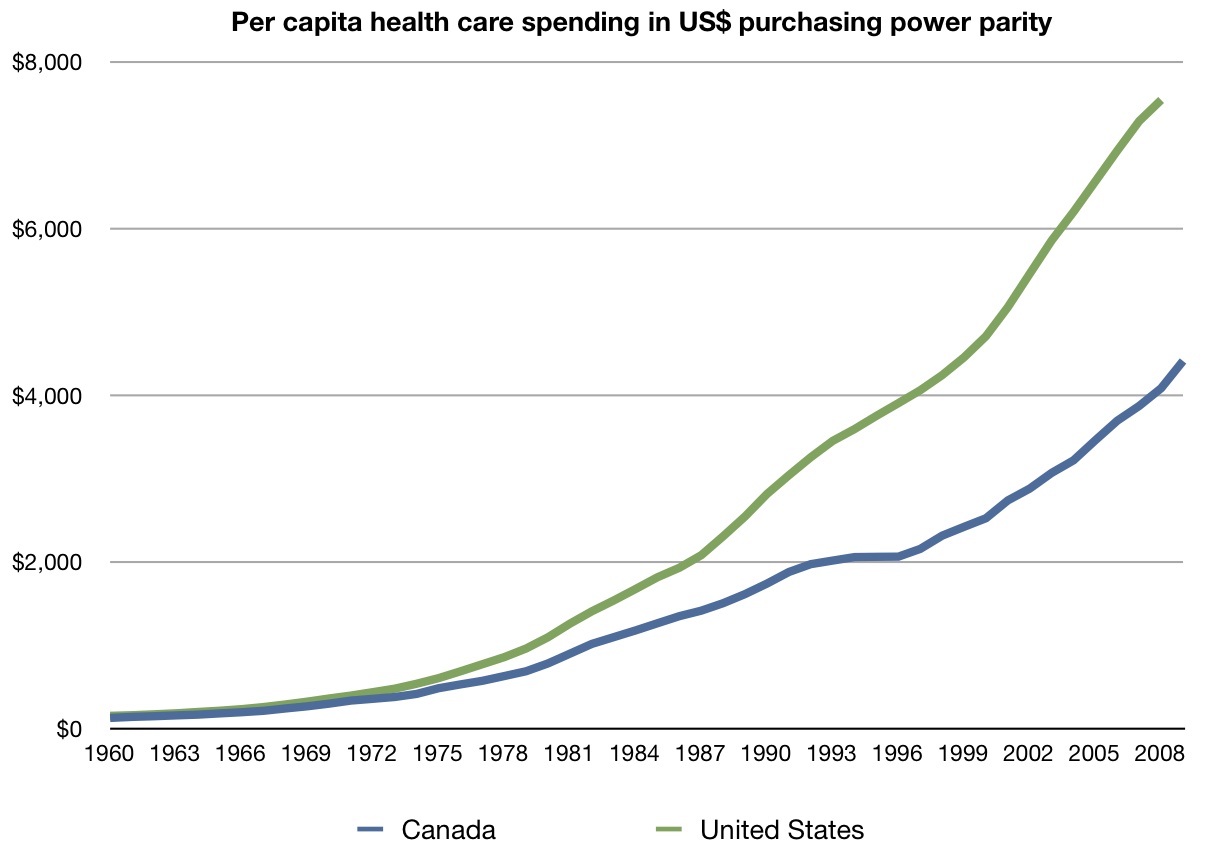The BBC starts chiming in on American decline. This time, the focus is on education attainment.
An integral part of the American Dream is under threat - as "downward mobility" seems to be threatening the education system in the United States.The fears about declining education attainment are overblown, but their hearts are in the right place. Most of this stems from the fact that the US was once the most educated country on earth, which is no longer true. While it still remains highly educated and ahead of places like the UK at the secondary level, a slight decline is starting to emerge. Jared Bernstein was clearly pissed off by this chart, which the OECD released a couple years back and continues to update each year.
The idea of going to college - and the expectation that the next generation will be better educated and more prosperous than its predecessor - has been hardwired into the ambitions of the middle classes in the United States.
But there are deep-seated worries about whether this upward mobility is going into reverse.
Andreas Schleicher, special adviser on education at the Organisation for Economic Co-operation and Development (OECD), says the US is now the only major economy in the world where the younger generation is not going to be better educated than the older.
 |
| Original via the OECD. Linked from Jared Bernstein's blog. |
The causes of this change are clear. Over the last twenty years, the US has been steadily eliminating its public support for higher education, and the increases in personal cost have gone up at a rate roughly proportional to the decreases in state funding. Despite what many would have you think about wildly out of control "costs," education is becoming more "expensive" mostly because we've decided to stop supporting it with public money.
Economic theory would say that this is a terrible mistake. Education provides substantial positive externalities; the benefit to society as a whole exceeds the personal benefit that a person receives from an education. This means that it will never be sufficiently supplied by private actors, since the price of education matches the private marginal benefit, not the public benefit. It's government's responsibility to intervene in these situations. Health care costs are the driver of these declines in education spending. State budgets have been particularly hard hit by increasing medical expenses (they provide most of medicaid, for example), and there is no indication that this trend will decrease. This is a nice example of the inter-connectedness of many policy issues. While someone might not think that universal healthcare is an economic issue (this tends to be the right's anti-Obamacare argument), state spending on health can crowd out state spending on other programs, having clear economic effects.
By foregoing education investments for immediate healthcare expenses, we are entering a spiral of forsaking the future for the present. As the linked OECD report points out, for men, each public dollar invested in higher education yields 5 dollars in public benefits (tax dollars, decreases in transfers). While the rate is quite a bit lower for women, the US has one of the highest benefit/ cost ratios for education in the world. Short-sighted thinking and our foolish attachment to private healthcare system is causing us to leave low-hanging fruit in the tree.
A comparison with Canada, one of the highest educated countries in the world, shows how drastically our broken health care system has distorted policy priorities. Even up to the middle of the 1970s, Canada and the US had relatively equal levels of health care spending per capita. As Aaron Carroll, points out, the US now spends almost twice as much as Canada; the US's outcomes aren't any better either.
 |
| From Adam Carroll at The Incidental Economist |
No comments:
Post a Comment